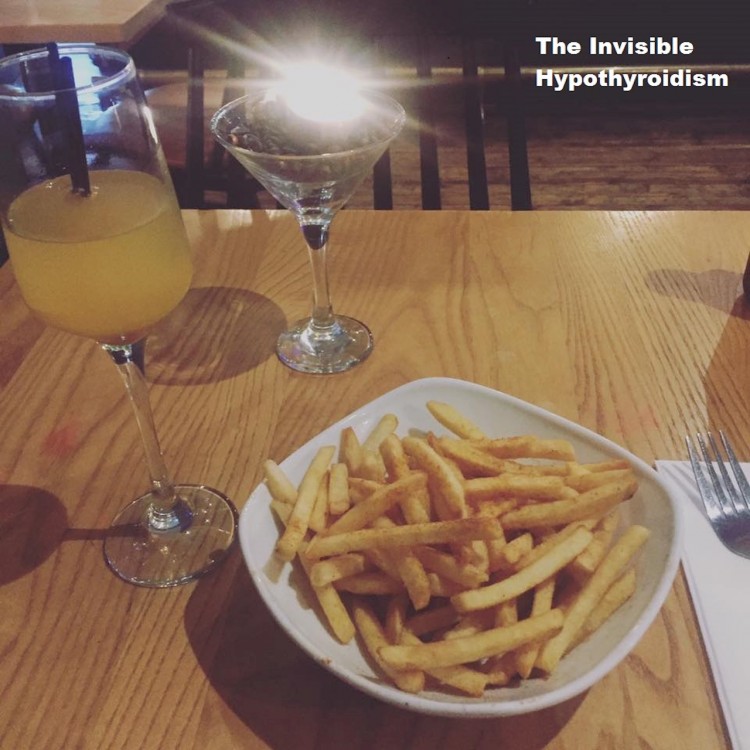The 'Hangover Effect' of Socializing With Hypothyroidism
Social events and activities can be great for everyone. Spending time with friends, family or even meeting new people is good for our mental health and promotes a good work-life balance for those of us who work. It’s easy to stay home all day or become a recluse, but it takes extra effort for many hypothyroid patients to muster up the energy and enthusiasm to socialize.
Why?
For many of us, social events drain us in several ways and can leave us with a “hangover” effect.
Mentally, we can feel exhausted from trying to maintain enthusiasm for discussions, a smile on our face and the ability to follow a lot of stories and updates from several different people, due to hypothyroidism affecting how our brains function. Thyroid hormone is needed to ensure our brains work right, and when this is low, we can seem forgetful, withdrawn, confused and strained. Focusing on making sure you pay as much attention as possible when you have thyroid brain fog – which can block concentration and the ability to process information – is very mentally draining. After a social event, I often get home and sit in silence for a good while, whilst my mind is still buzzing and trying to process the day! This can have a knock-on effect where I feel physically tired, achey and withdrawn, so I often need a day or two to recuperate afterwards. It’s like being overstimulated. Even loud noises or a disruptive party at the next table in a restaurant can worsen my hypothyroid symptoms and drain me even more so.
For those of us who are quite sensitive to how others around us feel or project themselves, this can add another layer to the draining qualities of social events. I’m particularly sensitive to negative emotions and tend to suck them up. If my other half comes home after a bad day and is feeling down, I soon do, too. If I’m with someone who complains a lot and moans about everything, I soon find myself doing it and I become rather cynical, too. When we spend time with happiness-suckers (we all know who those people are) who leave us wondering why we even still bother with them, it can be especially draining on our energy and raise stress levels. They’re not good for us to hang around with too often, if at all.
And then there is the physical fatigue. People living with a chronic illness such as hypothyroidism are often known as “spoonies,” meaning we have a limited amount of energy and need to plan our energy use wisely so as to make it through the day. This can result in a shower, getting dressed or brushing our hair becoming exhausting, so before we even arrive to meet a friend we could already be exhausted! It might sound silly or even pathetic, but when you’re that limited in energy, it’s a real issue. Having to stand at an event can be debilitating, too, let alone walking from bar to bar or doing some other form of physical activity. Drinking can also worsen hypothyroid symptoms.

If a social event is in an unfamiliar place, then this can also be tiring for a few reasons. If applicable, the anxiety and worry felt over an unusual environment (anxiety seems common among hypothyroid patients) is tiring and can be overwhelming. It can be concerning to be in an environment where we have nowhere to escape to if we suddenly feel really ill, or where we feel unsure if they cater to our dietary needs (many underactive thyroid patients follow gluten-free diets, AIP, Paleo etc. to help with symptoms). We may also have had to travel or walk a certain distance to reach the location of the event, which uses up more of our “spoons.”
If the event is at our place, we’ve got the hosting to worry about – cleaning the house beforehand, going food shopping (don’t even get me started on how energy-draining that is), preparing food and generally being the host and looking after guests and their needs. For the average person this might be a bit draining or stressful, but it soon wears us down.
So as you can see, we can easily become depleted: emotionally, mentally and, of course, physically. Many of us have to plan to have a day or two to recuperate afterwards, and if it’s a longer event, say a weekend-long wedding affair, we’ll need to double the recovery time!
I often find myself weighing whether or not a certain social event or situation is worth the recovery time afterwards or if I can afford to spend days recuperating at all. You can click on the hyperlinks in the above post to learn more and see references to information given.
Follow this journey on The Invisible Hypothyroidism.
We want to hear your story. Become a Mighty contributor here.

